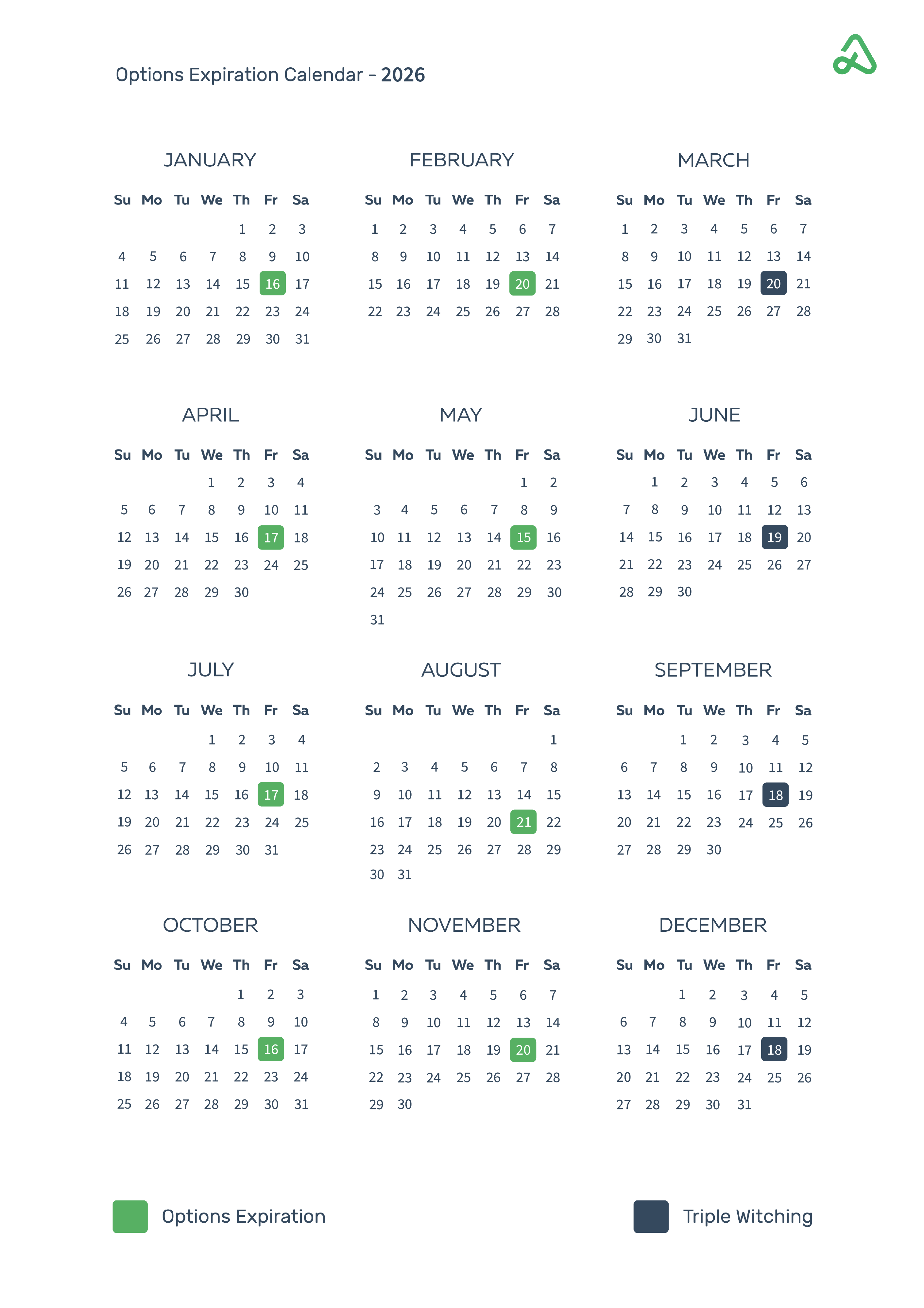Options expiration is the last trading day that an option can be exercised. When an options contract expires, there is no further trading activity on that contract. All options contracts have an expiration date.
On the expiration date, all options that are in-the-money (ITM) will be exercised automatically. The buyer of an option can exercise it any time prior to its expiration by notifying their broker. If you do not wish for your positions to be exercised at expiration, you must exit them before the market closes on the expiration day.
What happens when an option expires?
It is important to remember that if you own an options contract that has reached its expiration date, if there is intrinsic value left in the contract then it will be exercised whether you like it or not.
When an option expires, there are two possible outcomes:
- In-the-money (ITM) options are exercised automatically.
- Unexercised options expiring out-of-the-money will expire worthless.
When do options expire?
Monthly options contracts typically expire on the third Friday every month. All equity and index options expire at the close of business on expiration day. However, if that day is a market holiday, expiration may be earlier than usual or the previous day.
Many highly traded stocks and ETFs now offer weekly - and in some cases, daily - expirations.
Although the stock market closes at 4 pm EST, options can be exercised until 4:30 pm EST on the day of expiration.
Options Expiration Calendar 2025
Options have a finite life that ends at expiration. On the third Friday of every month, all listed options expire. This is important for investors to understand because it can affect the value of an option contract. At the close of business on expiration day, any contracts not closed will expire worthless.

An options expiration calendar is available to show investors when each listed option expires. Knowing when options expire and what type of option is expiring can help investors make more informed decisions about which trades they should enter or exit before expiration. For example, if you are long a call option with two weeks until expiration, you may want to consider closing out the position before then if your goal is to take profits rather than wait until expiration.
On top of understanding the actual date an option will expire, it’s also important to understand how different types of options work around expiration. If you own an American-style option contract, you can exercise it at any point up until its final trading day (the third Friday). On the other hand, European-style contracts are not allowed to be exercised prior to their final trading day.
Options value at expiration
When an option expires, its value is derived from the underlying asset’s price. In-the-money options will have intrinsic value. The intrinsic value is the amount that the option would be worth if it were exercised right away. For example, if a call option has a strike price of $50 and the underlying asset is trading at $55, then the call would be ITM and have an intrinsic value of $5.

Out-of-the-money options have no intrinsic value or extrinsic value at expiration because there is no time value remaing. Time value (theta), along with implied volatility (IV), is the extra premium paid for the option based on its time remaining until expiration and the underlying asset’s volatility.
When options expire they are worthless unless they are ITM with positive intrinsic value. Therefore, traders should always exit or exercise their positions before expiration to realize any profits or losses on their trades, or to avoid assignment.
Exercise and Assignment
Options holders may choose to exercise their right to buy or sell the underlying asset at any time before expiration. Once an option expires, it can no longer be exercised.
Options assignment is random and the process is facilitated by the Options Clearing Corporation (OCC).

Generally, the option holder will exercise a call option when the underlying stock is trading above the strike price, and they will exercise a put option when the underlying stock is trading below the strike price. When exercising an option, you are buying or selling shares of stock at the strike price.
If you are short an option, you may be assigned at any time prior to expiration by the options holder who has chosen to exercise their right to buy or sell shares of stock at the contract’s strike price, and you are obligated to buy or sell shares at the contract's strike price.







